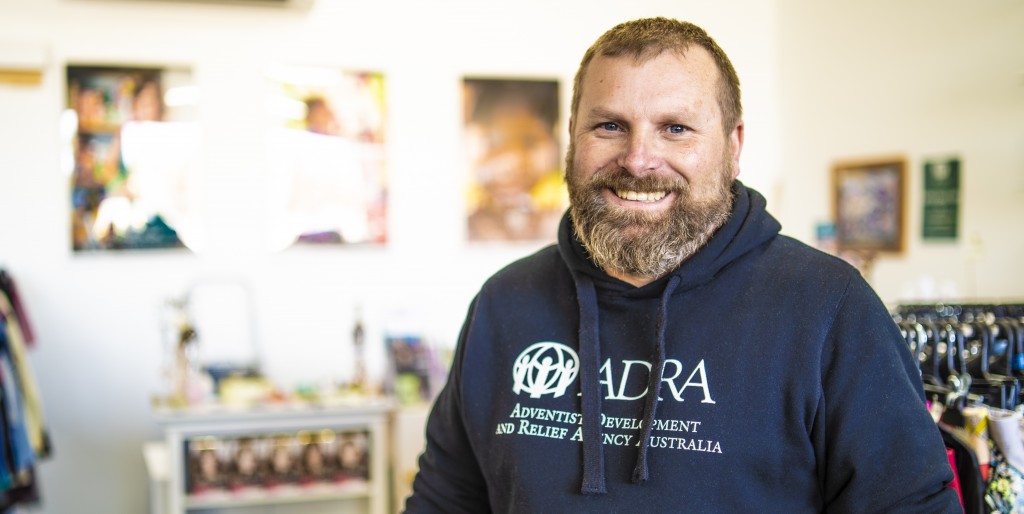Falling Through the Cracks
4 October, 2018
Four years ago, Jonathon was comfortable. Then his life turned upside down. He recounts an incredible journey of heartbreak, despair and, ultimately, hope.
It’s 2am. Cold and dark.
Jonathan lies awake, shivering. The abandoned factory Jonathon and his three young boys call their home is not peaceful and quiet. Next door, an industrial laundry roars to life, disturbing whatever restless sleep the family was having.
Jonathon never pictured himself homeless. Never imagined begging for food. How did it come to this?
The most alarming thing is how quickly everything turned upside down. It took just six weeks for Jonathon to go from living a normal life to having nothing. First an injury, then a loss of work, and finally a vindictive housemate who sold all his possessions from under him while he was overseas. When he returned, he was homeless – a broken man.
“It didn’t even cross my mind that it could happen,” Jonathon says. “To go from having a normal lifestyle with a good income, savings and a roof over my head, to the unthinkable… in the space of six weeks. That was all it took, from being normal to being invisible.
“Living in the warehouse was cold and lonely in winter, and hot and lonely in summer. It was really, really horrible,” Jonathon says.
“As a parent and a father it was rather brutal not being able to provide my kids with a proper house and basic things they needed. It was very depressing, which didn’t help anybody’s mental state. I found myself withdrawing more and more into myself and not wanting to interact with people.”
Jonathon remembers vividly the shame and embarrassment from that painful period. He remembers drifting between different soup kitchens and service providers with his kids. Mostly he remembers the feeling of worthlessness and loss of dignity.
“It’s important to have dignity because when you’ve got nothing, even your dignity starts to disappear because you’ve got to beg for food or rummage through garbage just to find food to survive. That gets really depressing – people look down on you or they don’t acknowledge you at all, they don’t smile at you.
“You just disappear, you just fall into the cracks and disappear. We felt worthless. A feeling that we didn’t matter, nobody cared.”
It was when he almost reached the brink that a turning point came. Jonathon calls it a miracle.
“We were given a piece of paper with the Vive Café address on it.”
He’d heard about Vive Café – a community in Melbourne’s eastern suburbs run by ADRA. As well as offering a hot three-course meal, guests could access grocery items sourced through Foodbank and SecondBite. But most of all, the friendly smiles and meaningful conversations with people who actually cared.
“It was an inkling of some hope that we might be able to get some food there, and some conversation and a bit of help,” he says.
Straight away, Jonathon says he and the boys started to feel noticed and appreciated. “That alone was worth more than any other thing that could be provided. That feeling that you’re a person and you matter, which we hadn’t experienced at any other outreach place that we’d attended before.”
He says Vive Café had “a general atmosphere of wellbeing and just a nice place to come. Even just for one night a week it made people feel human again, that they mattered.
“It gave people back some dignity.”
Now back on his feet, Jonathon still turns up every Thursday night. Why? “To give back some of the help we received.”
Last year, Jonathon was baptised, and he also volunteers once a week managing an ADRA Op Shop.
Jonathon’s story highlights the mostly hidden issue of homelessness in Australia, the so-called ‘lucky country’.
“Australia is the lucky country if you’ve got money. If you’re living below the poverty level, it’s not lucky, it’s very hard to survive. If you don’t live in that world, you don’t know of its existence.”
His challenge? Do something. Anything.
“If every person did just a tiny bit to help, we could end homelessness and poverty in Australia very quickly. It would be great if Vive wasn’t there in future, purely because it wasn’t needed.”
Your support during the ADRA Appeal in October helps people like Jonathon to thrive.
Words: Josh Dye
Photo: Luke Vodell
 1800
242 372
1800
242 372